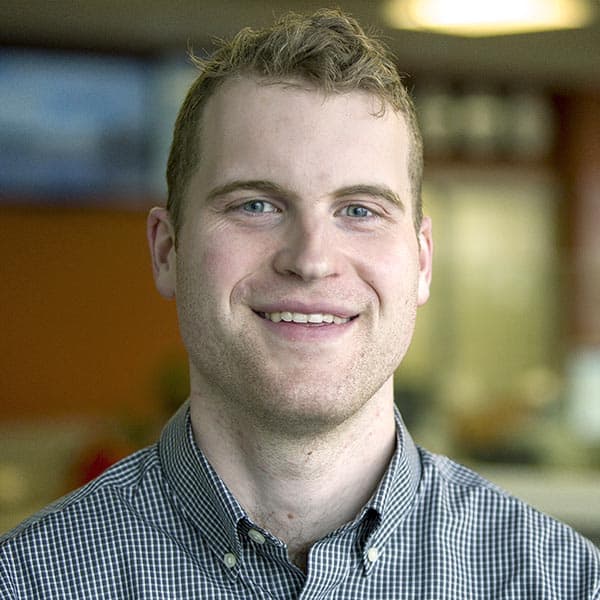Advertisement
Bill Gates: 'It Doesn't Seem' That Breaking Up Tech Companies Would Solve Privacy Issues
Resume![Bill Gates, co-founder of Microsoft, says he isn't sure breaking up big tech companies like Facebook and Google would address issues like privacy. "I'm not aware people are saying that [tech companies have] broken laws in such a way that the remedy would be to do that," he tells Here & Now. (Jack Taylor/Getty Images)](https://wordpress.wbur.org/wp-content/uploads/2019/06/0614_gates-1000x667.jpg)
Facebook, Google and other tech companies are under increased scrutiny amid controversy around privacy, foreign political interference and their sheer size and influence. 2020 presidential candidates like Sen. Elizabeth Warren call them modern-day monopolies — and say they should be broken up.
But Bill Gates, co-founder of Microsoft, says he isn't sure that would offer a solution.
"Generally, you've got laws in the country and you ask companies to adhere to those laws," Gates (@BillGates) tells Here & Now. "I'm not aware people are saying that [tech companies have] broken laws in such a way that the remedy would be to do that. It doesn't seem like just going around breaking up companies solves privacy issues."
There is room for greater tech regulation by Congress, Gates says, adding that news media distrust stirred up online "has got to be a concern for everyone" — and that fresh challenges like misleading deepfake videos could only exacerbate that distrust.
"Certainly in areas where people are using social media for bullying, where you have foreign actors doing election-related activities — even the companies involved say that given the mainstream role, there is room for election-related or child-protection or privacy-type rules," he says. "Each of those areas is complex. You have examples coming out of Europe that you can look at on the privacy front. In some of these areas, it's new ground [for regulation]."
Gates is also headed to Capitol Hill later this month to talk to lawmakers about the Trump administration's proposed State Department budget cuts. He says Congress ought to "maintain if not increase" funding for foreign aid programs targeting diseases like AIDS — an issue that's been a focus of Gates' philanthropy through the Bill and Melinda Gates Foundation, which is a funder of NPR — and that such spending has saved millions of lives.
"I think the Congress will override the proposed budget cut," Gates says. "But I'm going there to talk about this, because I get to see this work in the field, I get to see that the money is very well spent, and so I think it'd be a tragedy if there were cuts."
Interview Highlights
On whether big tech companies like Facebook and Google are monopolies
"They certainly have high market shares in some of the areas they work in, and they have impacts on a lot of the sectors of the economy, and they have become ... key tools for communication and even getting news. They're important companies."
On his concern about the U.S. slashing foreign aid funding
"I think the United States should be incredibly proud [of] how on a bipartisan basis the support for health aid — including [the U.S. President's Emergency Plan for AIDS Relief], which went after HIV, and [The Global Fund to Fight AIDS, Tuberculosis and Malaria], they've kept over 10 million people alive that would be dead today. They've allowed these African countries a chance to get their health systems organized to make it less likely that epidemics start in those countries. And so I think given the strength of the economy, I think the U.S. should at least maintain if not increase these budget items."
On those defending the cuts and asking why U.S. taxpayers ought to fund foreign aid
"You're saving lives for very small amounts of money, and certainly the Global Fund is fantastic at requiring countries to finance along with the United States as much as they can. But this is government at its best: saving lives, lifting up countries, avoiding instability and epidemics that would threaten U.S. citizens. This was done on a bipartisan basis starting under President [George W.] Bush. If you can't support this, it's hard to know what you can support."
On some Democratic presidential candidates calling for a "wealth tax" on the richest Americans, and whether he'd be willing to pay
"I think taxes can be more progressive. If the government's going to take on the increases in medical costs, and eventually not let the deficit get too big, there's a need to find revenue and I think that can be done in a progressive way. A wealth tax in particular is complicated to implement. But if that's part of a progressive tax plan that the country wants, then, you know, that's great.
"The first thing is to make sure the state — which provides education and health and roads and justice — that it's properly financed to do the things that the voters want it to do. Whether that leaves room for deductions for philanthropy, people are going to give money no matter what the tax treatment of philanthropy is. Under certain tax structures they'd give less. I do think the estate tax is a good tax. It could be even higher. That has led to some very good philanthropic giving. But first you've got to figure out your taxes, and then the philanthropic impact comes after that."
On how closely he's following the 2020 presidential race, and if there's a candidate he currently supports
"I don't follow the speeches of all 24 candidates. I'm fairly private about my political approach, because our foundation really … has engaged and will engage with all administrations."
Jill Ryan produced this interview and edited it for broadcast with Todd Mundt. Jack Mitchell adapted it for the web.
This segment aired on June 14, 2019.

